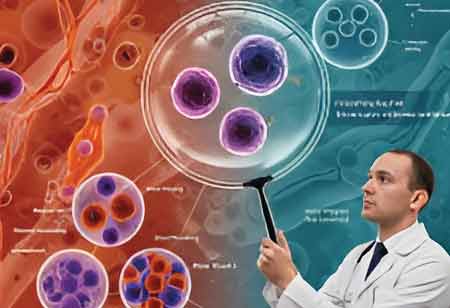Thank you for Subscribing to Healthcare Business Review Weekly Brief
Trends in Dermatology for Enhanced Skin Care

Be first to read the latest tech news, Industry Leader's Insights, and CIO interviews of medium and large enterprises exclusively from Healthcare Business Review
Thank you for Subscribing to Healthcare Business Review Weekly Brief

By
Healthcare Business Review | Friday, November 29, 2024
Stay ahead of the industry with exclusive feature stories on the top companies, expert insights and the latest news delivered straight to your inbox. Subscribe today.
Dermatology has experienced significant advancements in recent years, and the future holds even more tremendous promise. Innovations in technology, scientific research, and patient care are converging to revolutionize how dermatological conditions are diagnosed, treated, and managed. From personalized treatments to AI-driven diagnostics, dermatology is undergoing a transformation that will enhance both medical outcomes and patient experiences. Personalized medicine is rapidly entering dermatology. The traditional “one-size-fits-all” approach gives way to treatments tailored to an individual’s unique genetic makeup, lifestyle, and environmental exposures.
Genomics and molecular biology advances enable dermatologists to understand how a patient’s skin responds to specific treatments based on their genetic profile. Pharmacogenomics research reveals how individuals metabolize drugs differently, which can guide dermatologists in prescribing the most effective treatments with minimal side effects. AI and ML are poised to transform dermatology, particularly in diagnosis. AI systems can analyze thousands of images of skin conditions, learning to distinguish between benign and malignant growths with a high degree of accuracy. With AI tools, dermatologists can make more informed decisions and reduce diagnostic errors.
Dermatology is one of the specialties that has adapted well to virtual care, and this trend is likely to continue. Wearable devices, smartphone apps, and home-based imaging technologies can monitor skin health and send data to dermatologists for analysis. The innovations will allow for more proactive and continuous management of chronic conditions like psoriasis, eczema, and acne, reducing the need for frequent in-person visits.



